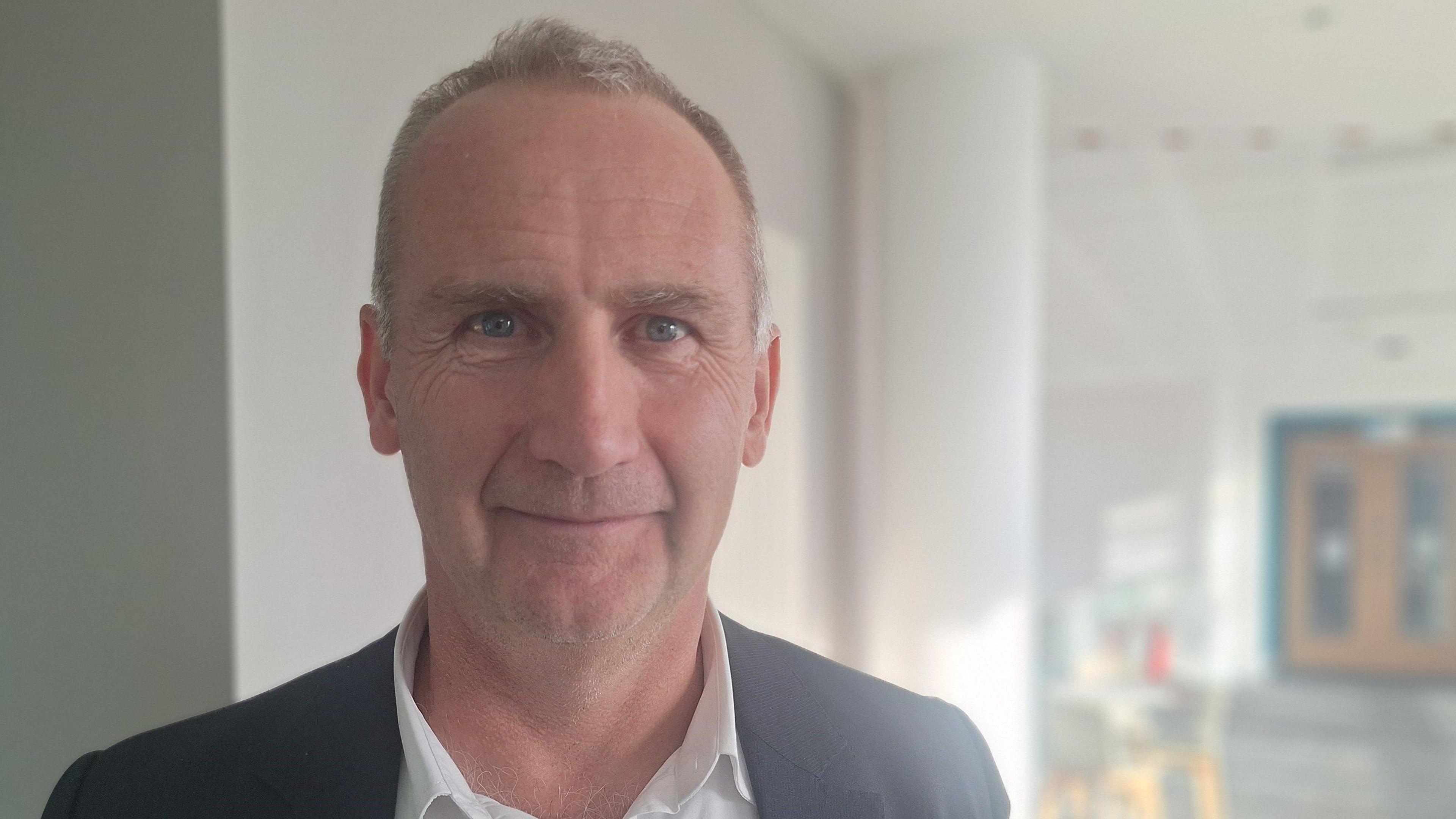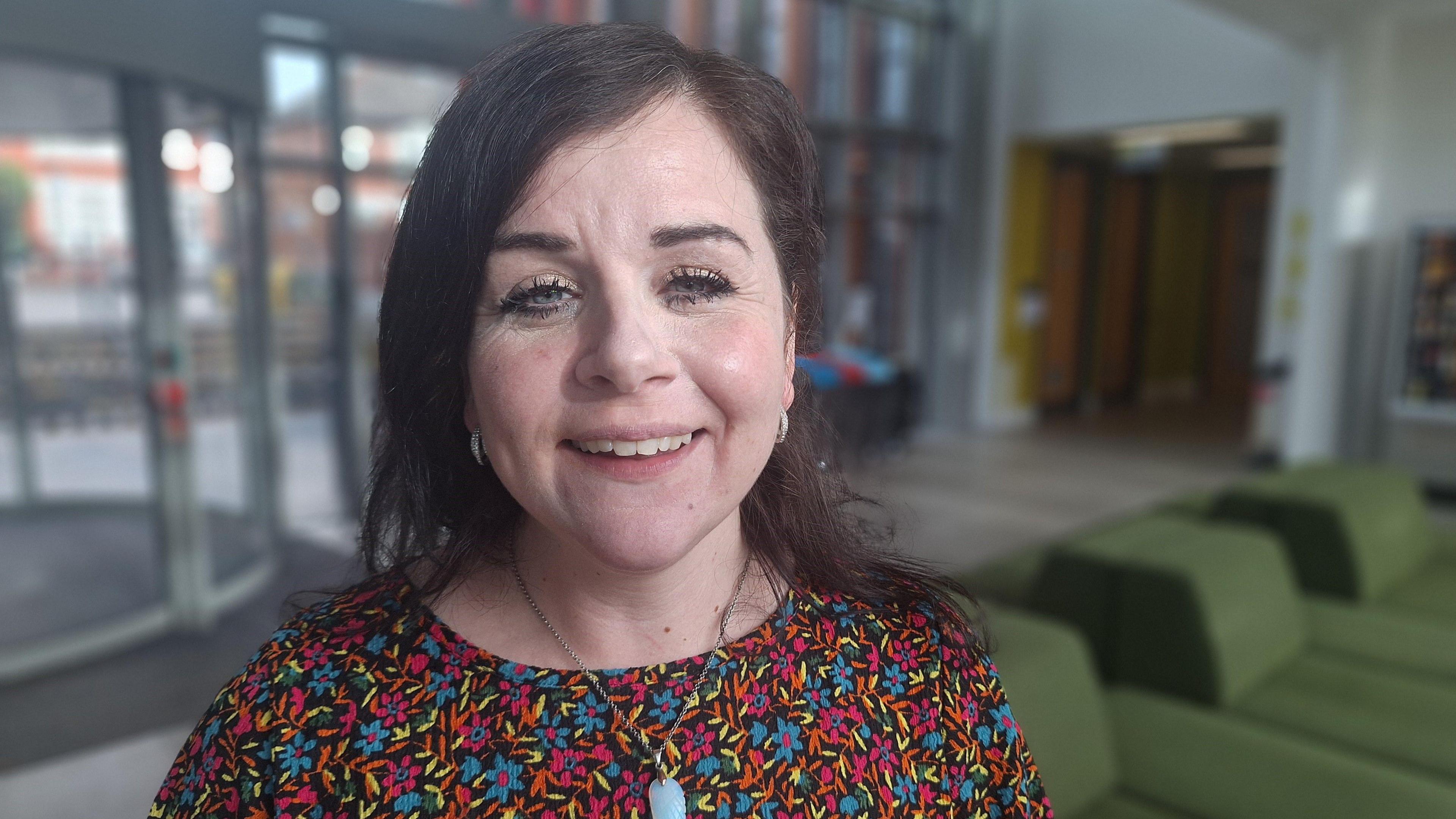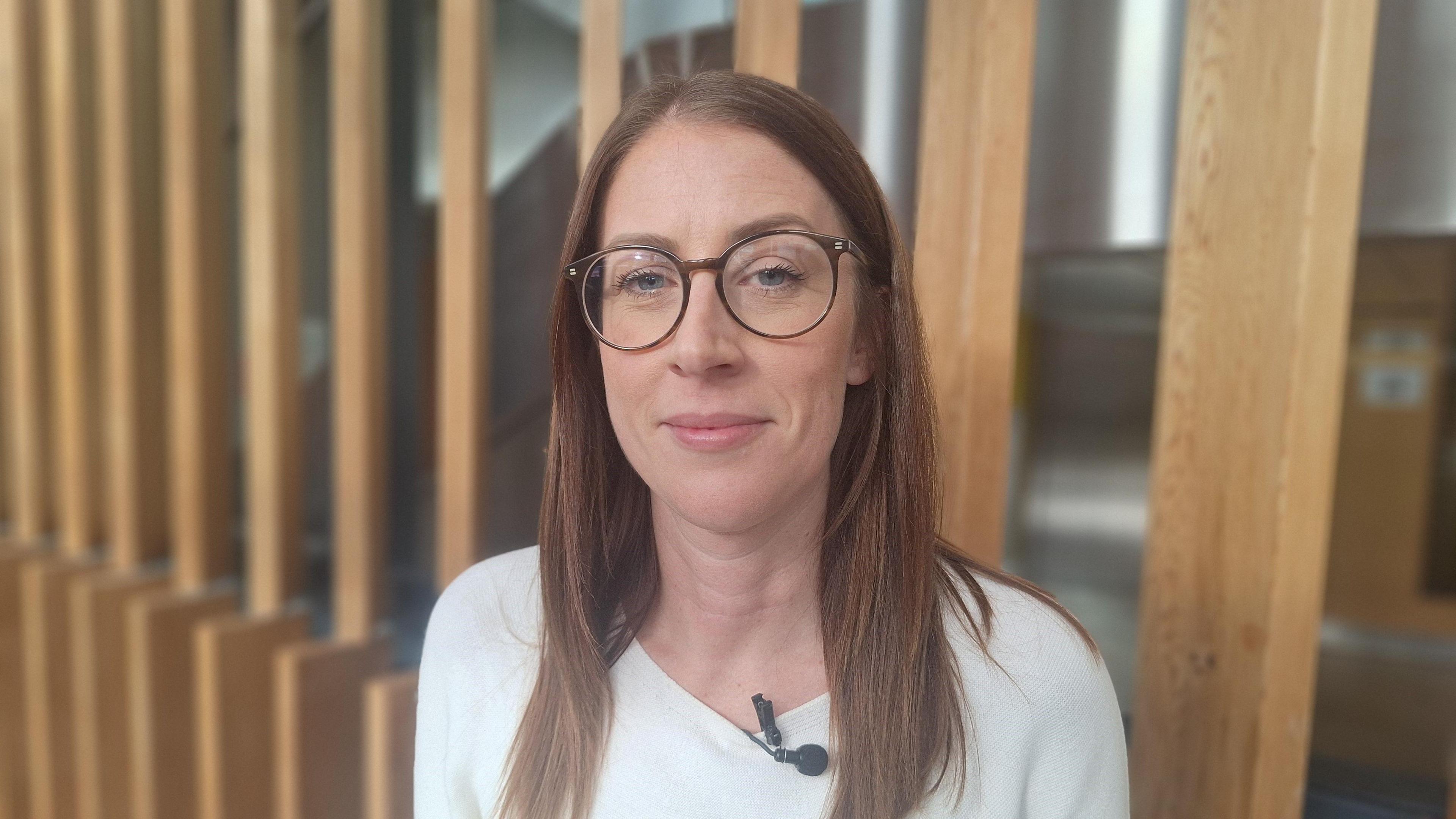Mental illness causes could be revealed by major new study

Academics say establishing the causes of serious mental illnesses could lead to better treatments
- Published
A world-leading study could lead to better treatment and diagnosis of serious mental illnesses, academics say.
There have been no truly new treatments for schizophrenia, external, bipolar disorder, external or psychosis, external since the introduction of anti-psychotics and lithium more than 50 years ago.
Life expectancy for people with serious mental illnesses is 10 to 20 years younger than the general population and current medication can have serious side effects.
A range of data is being collected from 600 people by Cardiff University in an attempt to understand the causes of these illnesses, and the findings will be available to scientists around the world to develop new treatments.
"If we can get to cause then we can start looking at new treatments," said Neil Harrison, a professor of psychiatry and neuroimaging at Cardiff University.
Bipolar disorder, schizophrenia and schizoaffective disorder affect around 3% of the population but account for more than a quarter of the UK's estimated annual £118bn spend on mental health, according to Prof Harrison.

Neil Harrison believes cancer treatments have been transformed, but the same focus has not gone on mental illness
He said treatment for illnesses such as cancer had been transformed over the last decade whereas there had been little progress in treatment for serious mental illness.
"We need to go back to basics, 'what's really going wrong in the brain processing?'," he said.
"I don't think we truly understand enough about the causes of these conditions and that's what we're hoping to do."
Carina was diagnosed with bipolar disorder, a mental health condition which causes extreme mood changes, when she was 23.
She has since been detained under the Mental Health Act nine times and has spent long periods in hospital.
When she is unwell she has four months of feeling manic followed by four months of deep depression.

Carina has bipolar disorder and is participating in the study at Cardiff University
When Carina is manic, or psychotic, she can think she is on a divine mission from God and will experience delusions which she says are so compelling that no one can persuade her they are not real.
She said being detained was traumatising.
"If they're kind and humane and considerate about it, it causes you a lot less stress and a lot less trauma and I believe the depressive episode that always follows is always more mild if you've been humanely detained," she said.
Carina takes medication which stops the psychosis but she described the side effects as distressing.
She said they caused cardiovascular problems and on one occasion, she put on more than two stone (15kgs) in seven weeks.
The episodes are triggered by extreme stress and she has been detained while studying a masters degree and a mental health nursing degree.
Pioneering bipolar disorder study
Cardiff University work could help in treatment of mental illnesses
Listen now on BBC Sounds
Carina said she was now an "expert by experience" and works with a number of universities and organisations. She has also taken part in the new research at Cardiff University.
"It would be amazing in a few years if people with psychotic disorders have the same life expectancy as the general population," she said.
Carina said she wanted more understanding, less stigma and more compassion.
"If an older person presents at a train station in distress, people are kind and think they're someone with dementia," she said.
"That wouldn't happen if the person was psychotic."
Dr Alun Thomas, chief executive of the mental health and addiction charity Adferiad, said that sensationalist reporting of serious mental illnesses created stigma and fear.
"The public then sees serious mental illnesses as a danger, rather than the danger being we don't respond to the symptoms early enough," he added.

Research fellow Dr Sophie Legge said the data collected would be far richer than other similar studies
The Bipolar, Schizophrenia and Psychosis Research Initiative, external is being run by Cardiff University's Brain and Genomics Hub.
Research fellow Dr Sophie Legge said it would look at the underlying biological, psychological and social mechanisms behind the illnesses.
"We're collecting social and demographic information as well as symptoms, cognitive tasks as well as biological data," she said.
"We're looking at next generation sequencing and trying to identify new genomic variants that haven't been identified before and things relating to the brain, so brain structure via an MRI scan and brain activity via MEG scan.
"It's hoping that by bringing all these different data types together, and looking at symptoms rather than diagnosis we can bring change forward."
If you've been affected by the issues in this story, help and support is available via BBC Action Line.
More top stories
- Published1 day ago

- Published3 days ago

- Published2 days ago
